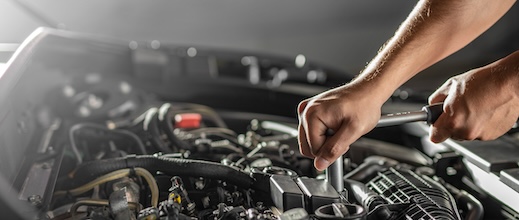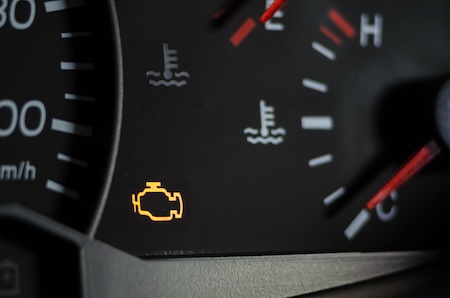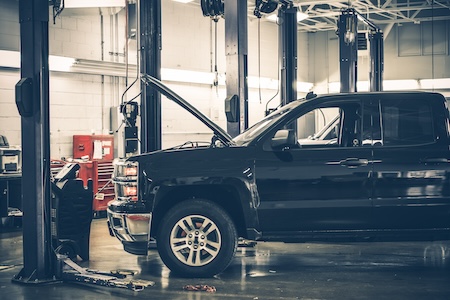We get it—you see a big-chain auto repair shop with flashy signs, weekend hours, and a recognizable brand. It’s tempting. But bigger isn’t always better, especially when it comes to something as personal and essential as your vehicle.
We believe in the power of keeping things local. And when it comes to auto repair, choosing a local family-owned auto shop over a national chain can make all the difference. Not just for your car, but for your peace of mind, your wallet, and your community.
Here’s why thousands of Denver drivers prefer local, independent mechanics like us.
1. Personalized Service You Can Trust
Walk into a local shop, and chances are you’ll see familiar faces. People who know your name, your car, and even your preferred oil type. That’s not something you’ll get from a rotating cast of technicians at a big-box garage.
Local mechanics build relationships. They remember:
- Your vehicle’s history
- Previous issues and repairs
- Maintenance schedules
- Your driving habits and lifestyle
When you’re a regular at a local auto shop, you’re not just another ticket in the queue. You’re part of a community, and that means more attention to detail and more care in every repair.
Denver Tip: The high altitude and changing climate put unique stress on vehicles. A local mechanic understands the local driving conditions and can make service recommendations that fit your lifestyle, not a one-size-fits-all national checklist.
2. Better Communication and Transparency
One of the biggest frustrations with big-box garages? Feeling like you’re being upsold on services you don’t need. Local shops thrive on transparency because reputation is everything.
Local shops like ours:
- Walk you through what’s wrong with your car (and why it matters)
- Offer honest quotes—no inflated labor fees or surprise charges
- Invite you to ask questions and be part of the decision-making process
We explain things in plain English. We’ll even show you the worn part or walk you through your car’s dashboard codes. That kind of service builds trust. And that trust keeps our customers coming back.
3. Skilled Technicians Who Stick Around
At a big-name chain, mechanics may come and go. Training levels can vary, and service consistency can be hard to maintain. With a local family-owned auto shop, the same team often stays in place for years—even decades.
Our techs are:
- ASE-certified with years of hands-on experience
- Passionate about cars and committed to lifelong learning
- Invested in their work because they’re not just employees—they’re part of the community
That continuity means better diagnostics, faster repairs, and fewer mistakes. It also means we can track your vehicle’s health over time and spot problems before they get expensive.
4. Faster Turnaround and Flexible Scheduling
Let’s be real—no one wants to be without a car for days. While large chains often have corporate policies and long wait times, local auto shops can be more flexible and responsive.
We know your time is valuable. That’s why we:
- Work hard to accommodate your schedule
- Communicate clearly about wait times and repair progress
- Offer honest timelines—if it’s going to take a day, we’ll tell you up front
Sometimes, we can even get you in and out the same day. No red tape. No waiting on corporate approvals. Just fast, efficient service.
5. Support for Your Local Community
Every dollar you spend at a local business stays in your community longer. By choosing a local auto shop, you’re:
- Helping employ local technicians and staff
- Supporting local suppliers and other small businesses
- Investing in your neighborhood’s economic health
Big-box garages send their profits to headquarters. We reinvest in Denver. We sponsor local events, support youth programs, and work with other independent businesses because we care about where we live and about the people we serve.
Bonus: No Pressure, Just Honest Advice
One of the lesser-known perks of choosing local? We’re not under corporate sales pressure. Big chains often have quotas or “suggested service” checklists that pressure mechanics into upselling, whether your car needs it or not.
Our goal is simple: Do what’s best for you and your car. That’s it. We won’t push unnecessary repairs or try to upsell you on services you don’t need. Instead, we’ll give you options, explain the pros and cons, and let you make the call.
Why It Matters More Than Ever in Denver
Denver drivers face a unique set of challenges:
- Elevation strains engines and cooling systems
- Changing temperatures stress batteries, belts, and hoses
- Road salt and mag-chloride cause undercarriage corrosion
- Mountain driving puts extra wear on brakes and transmissions
Local shops understand these nuances better than anyone. We know how to prepare your car for a weekend in the Rockies, what happens to brakes after a snowy winter, and how to get the most life out of your tires on Denver’s rougher roads.
Local Is Personal. And That’s a Good Thing
When your vehicle needs attention, you want someone who treats it like their own. That’s exactly what you get with a trusted local auto shop.
You’re not just choosing convenience—you’re choosing:
- A partner in car care
- A more personal, transparent experience
- Technicians who know your car inside and out
- Faster, friendlier service
- A stronger, more connected Denver community
Looking for a local auto shop you can trust?
We’re proud to be Denver’s go-to family-owned auto repair shop. From oil changes to diagnostics to full repairs, we offer honest, expert service that puts you first—every time.
Schedule your next service with us and see why going local makes all the difference.










